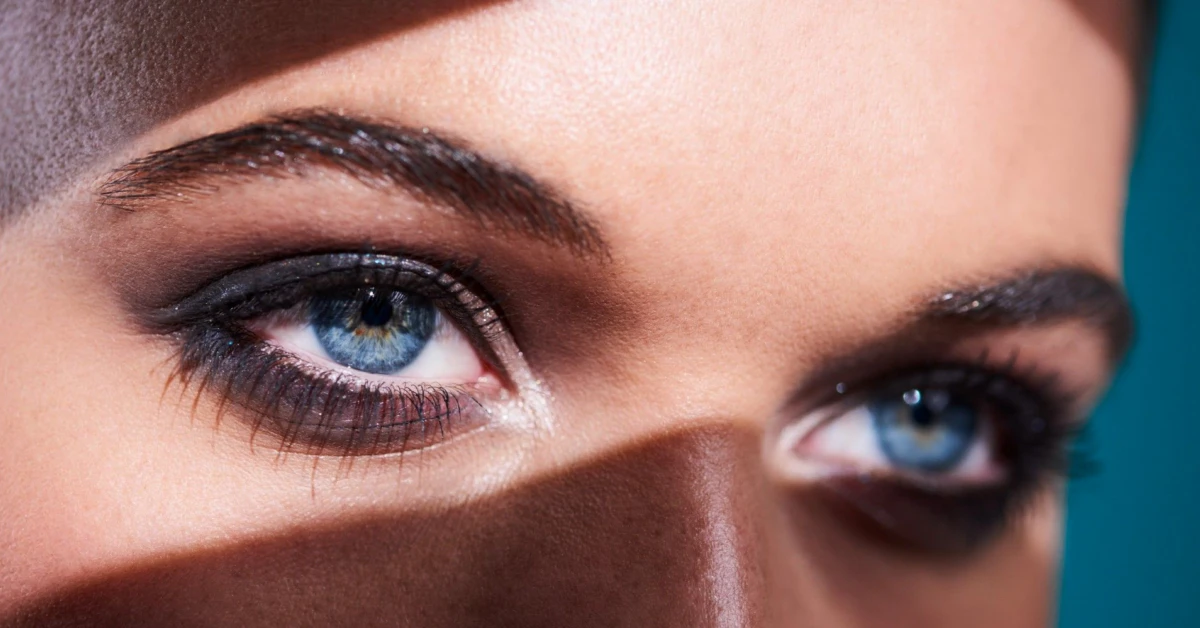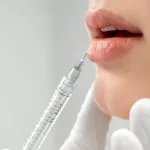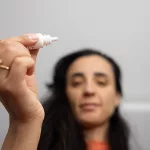Did you ever swipe on an eye cream with the hope it’d save your tired eyes—only to wind up with itchy, red, or even puffy skin? Oof. I’ve totally been there. You think you’re treating yourself to something fancy and gentle, and then, boom, you’re running for ice cubes in the middle of the night. Sensitive under-eyes can feel like a cruel prank, but trust me, it’s something so many of us deal with… only most people don’t talk about it because, well, irritated eyelids aren’t exactly glamorous brunch conversation.
But here’s the thing: you absolutely deserve comfort and results, not just one or the other. Finding the best hypoallergenic eye cream for sensitive skin isn’t about luck—it’s about knowing what your skin actually needs. So let’s talk—really talk—about the world of eye creams, ingredients, sneaky irritants, and why “hypoallergenic” can be the game-changer your face has been craving. We’ll get into the nitty-gritty of all the stuff you’re actually wondering about, okay? No fluff, no filters, just real talk (and maybe a few laughs along the way). Ready?
Why Do Your Eyes Need Such Special Care?
Let’s get honest for a sec—the skin around your eyes? It’s like the drama queen of your entire face. So thin, so delicate, so likely to overreact if you even breathe the wrong way. Why is that?
Well, it’s all about structure. The skin here is thinner than anywhere else, and there are fewer oil glands, so it dries out faster. That means anything even remotely irritating (think strong actives, fragrances, even rubbing your eyes when pollen’s around) can leave you looking blotchy or worse.
When you use an eye cream that’s not made for sensitive skin, or you just guess at what’s inside, it’s basically like rolling the dice on your comfort—and let’s be real, nobody has time for a swollen eyelid before a Zoom call. That’s where hypoallergenic formulas strut in. They’re made to minimize the chances of a reaction, avoid common triggers, and soothe instead of stress you out. Trust me, it’s not just about marketing; it can be the difference between calm and chaos.
What Kind of Ingredients Should You Avoid?
Sometimes, the eye cream aisle feels like a minefield. You probably already know to avoid harsh perfumes, but did you know that even some “natural” essential oils (like lavender or mint) can set your skin off? Preservatives, dyes, unnecessary thickeners—they’ve all got the potential to turn your beauty routine into an unplanned science experiment.
I still remember the time I, in a moment of reckless optimism, tried a “soothing botanical” eye gel that boasted twelve plant extracts. My under-eyes? They went full tomato. Since then, I always check for short, simple ingredient lists—my skin has made its preferences very clear.
What Should the Best Hypoallergenic Eye Cream for Sensitive Skin Actually DO?
Besides, you know, not giving you hives? The right eye cream should hydrate, help with dark circles or puffiness, and make the area feel comfortable (never tight or tingly). But to do that for sensitive skin, it needs a magic balance:
- Gently moisturizing without that heavy, greasy feeling
- Soothing redness or dryness
- Supporting the skin barrier—think ceramides and fatty acids
- Being so lightweight and calming, your skin almost sighs with relief
The best hypoallergenic eye creams for sensitive skin usually leave out the wild cards (perfume, unnecessary actives) and focus on what helps the skin bounce back: things like hyaluronic acid, squalane, niacinamide, or colloidal oatmeal.
How To Tell If An Eye Cream Is Really For Sensitive Types
Look for:
- Short ingredient lists that focus on hydration and calming
- No fragrance or “fresh” scent—seriously, your nose might miss it, but your eyes won’t
- Sensitive-skin claims from actual dermatologists or allergy groups
And my favorite tip? Always—always—do a patch test first on the side of your neck or behind your ear, before going anywhere near your precious under-eyes. If it tingles, stings, or burns… hard pass. Don’t gamble with your face.
Should You Even Think About Retinol If Your Skin Is Sensitive?
Ah, retinol. The little molecule that Everyone On The Internet swears will change your life, erase your wrinkles, and probably pay your rent if you let it. But is it okay if you have sensitive under-eyes?
Good news—sometimes you can have your cake and eat it too. There are retinol-based eye creams made for sensitive skin! The secret is to go very gentle (like, baby-step gentle). Brands often use micro-encapsulated retinol or retinaldehyde (a softer cousin), and they mix it with calming ingredients that cushion any harsh blow.
In fact, you’ll also see products labeled as best eye creams with retinol, best retinol under eye cream, or even best retinol eye cream for dark circles. The difference for sensitive types is all about the formula—look for ones made without fragrance, and that label themselves as hypoallergenic or suitable for sensitive skin. And if you’re prone to milia (those tiny under-eye bumps), you might want to check out best retinol eye cream for milia specifically. These usually blend retinol with hydrators that help prevent clogged pores.
| Feature | Conventional Retinol Eye Cream | Hypoallergenic Retinol Eye Cream |
|---|---|---|
| Retinol Type | Standard or concentrated retinol | Encapsulated or retinaldehyde, low percent |
| Fragrance | Often used to mask odor | None |
| Other Ingredients | May include alcohols, strong preservatives | Soothing agents like bisabolol, panthenol |
| Suitable for Milia-Prone Skin | No | Yes (look for non-comedogenic claims) |
Retinol can be a skin superhero, but only if you play it safe and slow. Start once or twice a week, and ramp up if your skin is unbothered. If redness or flaking shows up, back off and focus on hydration for a week or two—it’s not a race! You’ll get way better results being gentle and consistent.
Dry, Aging, AND Sensitive Skin? Here’s How To Win At Eye Cream
Raise your hand if your skin likes to overachieve in all the hard ways: sensitive, dry, and suddenly noticing lines where there weren’t any before. I get it. You want the best eye cream for dry aging skin but your face freaks out even with the “gentle” stuff.
Here’s what I’ve learned (sometimes the hard way):
- Creams rich in ceramides, peptides, and cholesterol are your friends. They strengthen your skin barrier so you’re less reactive in the long run.
- Squalane and shea butter give lasting, soothing moisture without the heavy, pore-clogging film.
- Niacinamide is like a mini spa day for sensitive skin: it can brighten, soothe, and help reduce redness.
But you don’t have to slather it on. Less is always more. Sometimes I use a rice-grain size amount for both eyes—any more, and I’ll be sliding my glasses down my nose all day. Just tap it in gently with your ring finger (because it’s the softest of all your digits!).
Real Life: When “Gentle” Still Goes Wrong
Quick story—I once tried a “miracle” anti-aging eye cream that a friend raved about. What did I get? Stinging so fierce I had to wash my face three times. Turns out just because it’s “anti-aging” doesn’t mean it’s good for sensitive skin. So don’t feel bad if something everyone loves doesn’t work for you. Safety > trending every time.
Best Practices: How To Use Eye Cream So It Doesn’t Bite Back
Here’s a little ritual I do (and it saves my skin):
- Always patch test, like I said. Just do it! Little dab behind your ear or on your inner arm for two days before going full-face.
- Apply after cleansing, but before heavier creams or oils. Clean skin helps the product sink in.
- Use your ring finger to tap, not rub, in the cream. Less pressure equals less irritation (and less chance you’ll stretch out that delicate skin).
- Start small—once a day, or every other day if you’re using actives, until you’re sure your skin is happy. In my experience, nighttime is safest (so you’re not fighting off mascara or SPF on top).
If you wake up with any redness, puffiness, or weird texture, stop and reassess. Sometimes it just means the product isn’t for you, or maybe it doesn’t play nice with something else you’re using. And that’s okay—not everything is one-size-fits-all, and your perfect match is out there.
True Expert Tips: What Dermatologists and Skin Pros Want You To Know
Ever get lost in the endless jungle of online reviews? Me too. It’s easy to get hyped by before-and-after photos or viral trends. But dermatologists often say, keep it boring (which, honestly, is advice I wish I’d taken sooner).
Some golden rules:
- If irritation shows up and sticks around, talk to a pro. No product is worth weeks of burning or flaking.
- Check for products tested by allergy or dermatology groups (some have little seals on them!). Those are usually safer bets for extra-reactive skin.
- If you’re feeling brave and want to try something new (like a retinol or vitamin C eye cream for sensitive types), look for formulas that use delivery systems designed to be gentle—like microencapsulation—or products that buffer strong ingredients with lots of hydrators.
- Ingredient lists look scary, but just scan for suspicious stuff (fragrance, essential oils, harsh preservatives) and skip them if you see them high up on the list.
And don’t just take my word for it—according to a guide from the American Academy of Dermatology, using fragrance-free and hypoallergenic products is one of the most important choices for anyone with sensitive skin. Science is on your side!
Let’s Wrap It Up: Your Calm, Confident Path to Happy, Sensitive Under Eyes
If you’ve made it this far, you officially care about your skin—and that’s something worth celebrating! Finding the best hypoallergenic eye cream for sensitive skin is not about endless trial and error or resigning yourself to plain old aloe gel. It’s about reading labels, trusting your own experience, and not letting anyone (or any ad) convince you to push through pain “for results.”
Your dream eye cream will hydrate, calm, and maybe even brighten, without a single wince. The trick is small steps and a big dose of patience—plus a willingness to nix anything that doesn’t feel just right. Listen to your skin, not the noise. Don’t be afraid to ask for samples, swap stories with friends, or even DM a dermatologist if something’s got you puzzled.
And if you’ve found an eye cream that finally lets your under-eyes breathe easy? Share your secret! Drop your favorites, swap stories, or just ask a question below. We’re all figuring this out together—and your tips might just save someone else’s skin (literally). Stay curious, be kind to your skin, and remember: you’re never alone in the journey for comfort and confidence.























Leave a Reply
You must be logged in to post a comment.